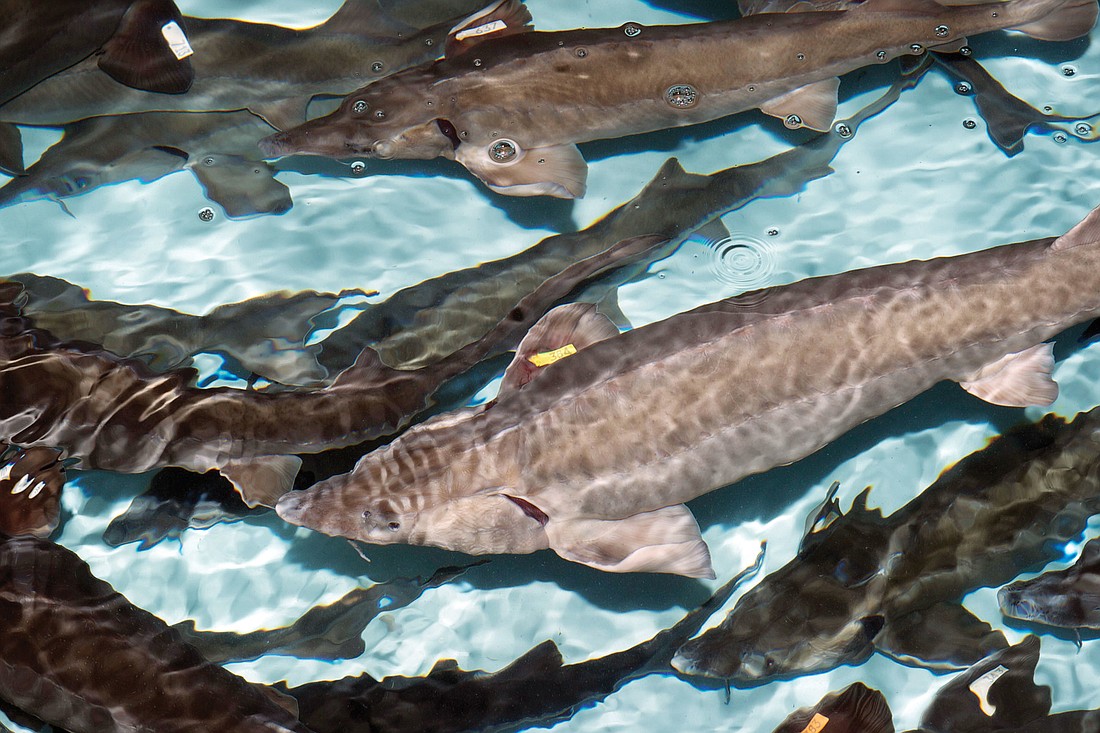- November 23, 2024
-
-
Loading

Loading

When Mote Marine Laboratory’s namesake, William R. Mote, retired from the shipping and transportation business he created, he decided that he wanted to give something back to the sea.
As a Tampa native, Bill Mote was an avid fisherman who was also concerned about the health of our oceans, and he especially wanted to make sure that fish stocks remained healthy for recreational anglers. That was how he came to be involved in our organization in the late 1960s.
Of all the studies under way at Mote Marine, Mote was especially excited about research to rebuild depleted populations of gamefish, such as snook, and about the possibilities of using aquaculture to farm fish for seafood production. He endowed several funds at Mote and Florida State University related to these studies and remained an advocate for fisheries until he died in 2000.
Initially, our studies focused on snook. From our first experimental release in 1997, we’ve moved on to test and determine the best practices for growing snook on land in systems that maximize water re-use for release to the wild.
In 2002, we broke ground for Mote Aquaculture Park, a 200-acre farm in eastern Sarasota County 17 miles from the coast. At this research facility — the largest of its kind in the U.S. — we are testing methods for growing many marine species for restocking programs.
This facility also gave us the room to develop our techniques for raising fish for food, including some saltwater species. But we needed a large-scale program to demonstrate that aquaculture could be done with minimal environmental impacts and that it could also foster economic development in Florida.
Aquaculture that focuses on water re-use is expensive, so we needed to grow a high-value seafood — Siberian sturgeon caviar. Not only would we be reducing the pressure for wild-caught sturgeon, but we would be continuing the ground-breaking R&D needed to bring the costs of this process down. We believe this will reduce the overall environmental impact of fish farming and promote a sustainable and economically vibrant industry — not just at Mote in Florida, but nationwide.
Today, I can report that:
• We use significantly less water than traditional fish farms. Typical farms use water for five to seven minutes. We use ours for five to seven days.
• Mote has developed filtration and oxygenation systems that use less energy than most other recirculating aquaculture farms.
• We have found innovative ways to keep our buildings cool and, subsequently, reduced our energy impact.
• We convert fish waste to food for plants that are later used in restoration programs.
•We’ve just installed a 30.2-kilowatt solar panel system provided by a local donor on a building at the park, reducing our energy footprint even more.
Clearly, we’ve got the research down. But how, you might be asking yourself, does farm-raised Mote caviar measure up?
Mote caviar has been featured during Monterey Bay Aquarium’s “Cooking for Solutions,” highlighting the importance of sustainable farming and fishing methods and received awards for sustainability.
More than a dozen of the world’s finest caviar houses feature Mote caviar, making it available nationwide. Locally, you can find it at Whole Foods (where we have a special offer through January), Morton’s Gourmet Market and Costco, and it’s served in restaurants such as The Ritz-Carlton, Sarasota, and Michael’s On East, to name just two.
We’re grateful for the community support that has allowed us to fulfill our mission to foster sustainability in our environment, support wild species and even help us foster a new economic development model right here in our community.
Dr. Kumar Mahadevan, a Siesta Key resident, has served as Mote’s president and CEO for the last 26 years.